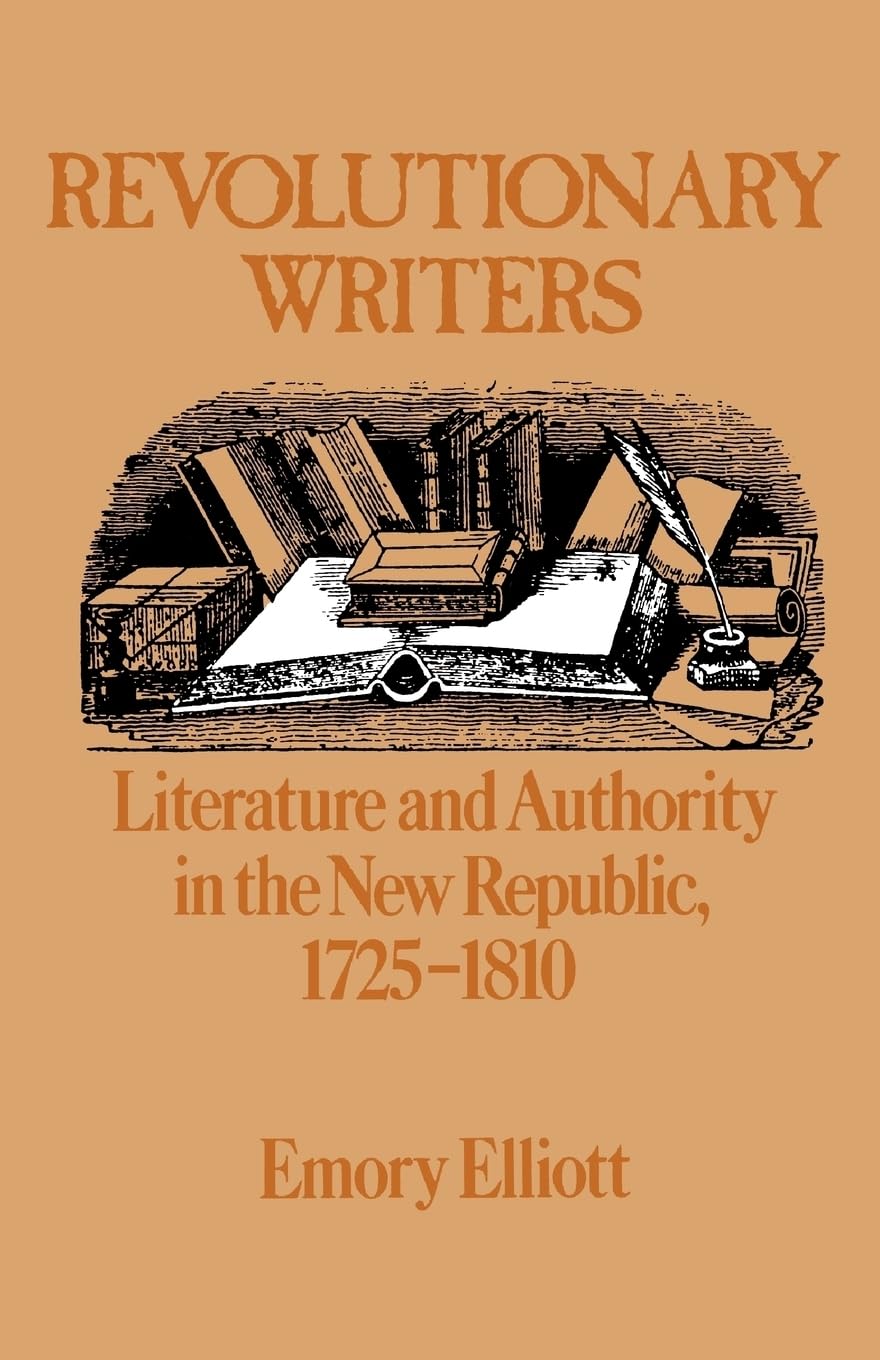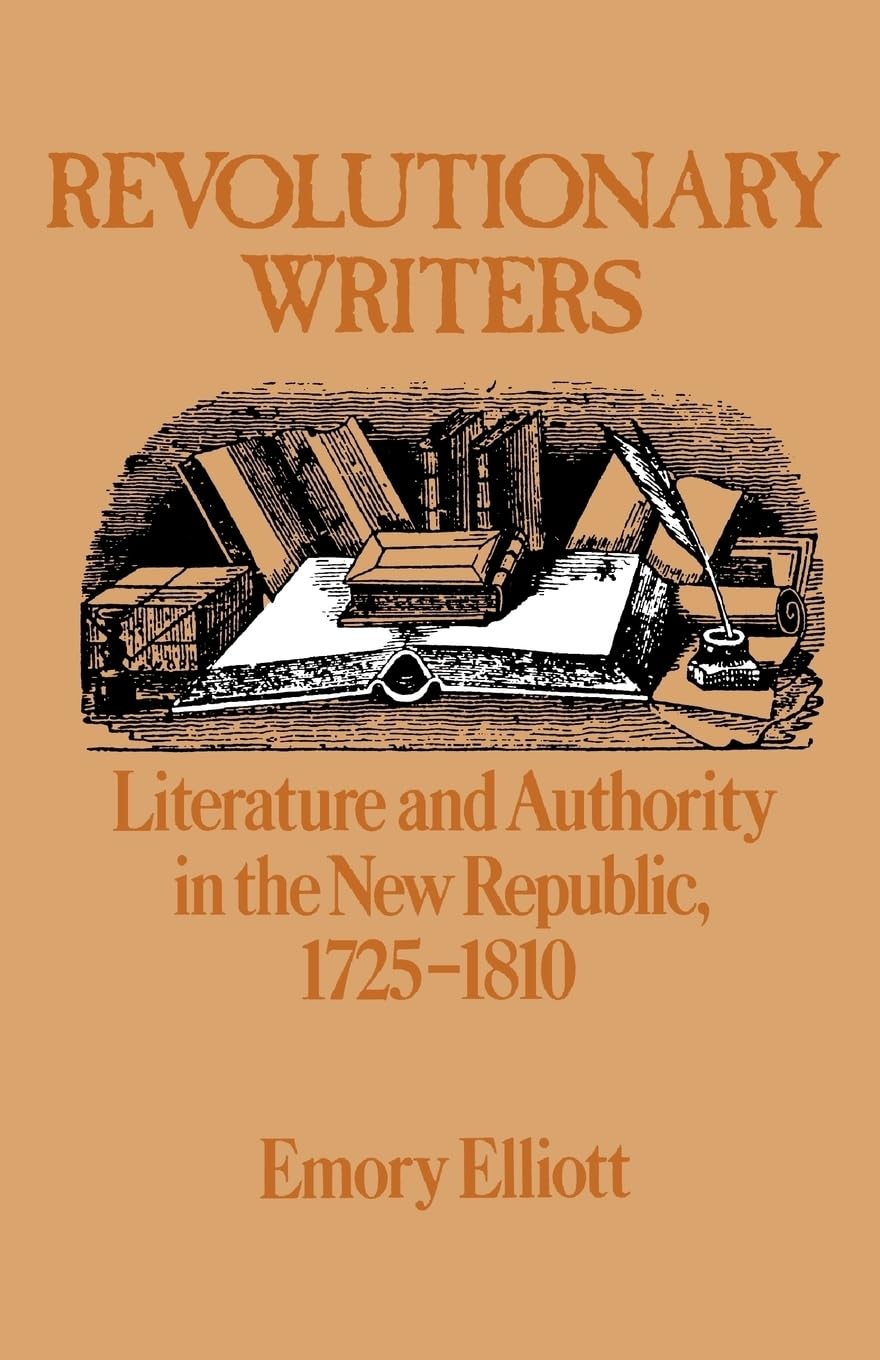Oxford University Press
Revolutionary Writers: Literature and Authority in the New Republic, 1725-1810
Regular price
$7.95 USD
Regular price
Sale price
$7.95 USD
Unit price
per
Shipping calculated at checkout.
Couldn't load pickup availability
Title: Revolutionary Writers: Literature and Authority in the New Republic, 1725-1810
Author: Emory Elliott
ISBN: 0195039955
Publisher: Oxford University Press
Published: 1986
Binding: Paperback
Language: English
Condition: Used: Near Fine
Excellent, unmarked copy with little wear and tight binding. We ship in recyclable American-made mailers. 100% money-back guarantee on all orders.
Literary Criticism 1617178
Publisher Description:
Elliott demonstrates how America's first men of letters--Timothy Dwight, Joel Barlow, Philip Freneau, Hugh Henry Brackenridge, and Charles Brockden Brown--sought to make individual genius in literature express the collective genius of the American people. Without literary precedent to aid them, Elliott argues, these writers attempted to convey a vision of what America ought to be; and when the moral imperatives implicit in their writings were rejected by the vast number of their countrymen they became pioneers of another sort--the first to experience the alienation from mainstream American culture that would become the fate of nearly all serious writers who would follow.
Author: Emory Elliott
ISBN: 0195039955
Publisher: Oxford University Press
Published: 1986
Binding: Paperback
Language: English
Condition: Used: Near Fine
Excellent, unmarked copy with little wear and tight binding. We ship in recyclable American-made mailers. 100% money-back guarantee on all orders.
Literary Criticism 1617178
Publisher Description:
Elliott demonstrates how America's first men of letters--Timothy Dwight, Joel Barlow, Philip Freneau, Hugh Henry Brackenridge, and Charles Brockden Brown--sought to make individual genius in literature express the collective genius of the American people. Without literary precedent to aid them, Elliott argues, these writers attempted to convey a vision of what America ought to be; and when the moral imperatives implicit in their writings were rejected by the vast number of their countrymen they became pioneers of another sort--the first to experience the alienation from mainstream American culture that would become the fate of nearly all serious writers who would follow.

